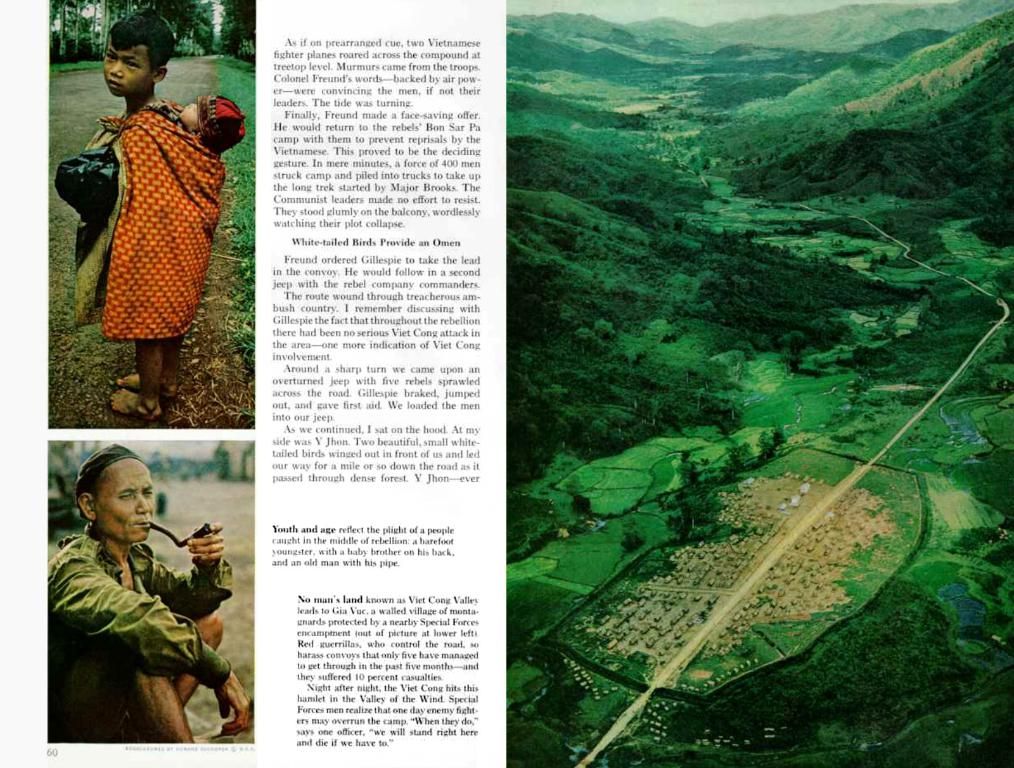Discovering the Essence of Colombia: Coffee, Fiestas, and Novels
Colombia, a country overflowing with diversity and traditions, is renowned for its vibrant culture. From the enticing fragrance of coffee plantations nestled in the mountains to the electrifying beats of its festivals and the depth of its literary heritage, a Colombian cultural experience offers an eclectic mix of influences and experiences. Let's delve into three significant aspects of Colombian culture: its acclaimed coffee, its spirited celebrations, and its contributions to literature.
More Than Just a Morning Ritual: Colombian Coffee
In Colombia, coffee is about more than just that morning jolt - it's a symbol of national identity and pride. The Colombian coffee-growing zone, commonly referred to as the "Coffee Triangle," encompasses the departments of Caldas, Quindío, and Risaralda. The unique geographical conditions, including high altitude and volcanic soil, contribute to the production of some of the world's finest coffee. The smooth, mild flavor and captivating aroma of Colombian coffee distinguish it from other coffees.
Colombian Coffee Traditions
In 2011, UNESCO designated the Coffee Cultural Landscape of Colombia a World Heritage site, honoring the traditional coffee-farming practices passed down through generations. The region's paisa culture, characterized by hardworking, hospitable individuals, takes immense pride in their coffee. This pride is evident during the annual National Coffee Festival in Manizales, featuring beauty pageants, parades, and coffee-tasting sessions.
Colombia's Cultural Pillar: The Coffee Industry
Since the late 18th century, coffee has played a vital role in shaping Colombian society and the economy. It has influenced social structures, local economies, and even politics. Coffee has provided livelihoods for millions of Colombians, and its international trade has spurred the country's economic development.
Joy and Color: Colombian Festivals
Colombia's festivals showcase the diversity and enthusiasm of its people. These celebrations range from religious to historical and cultural, and they are celebrated with energy across the country.
Carnival of Barranquilla: Kaleidoscope of Colors
One of Colombia's most famous festivals is the Carnival of Barranquilla, a four-day spectacular leading up to Ash Wednesday. Celebrated in UNESCO-recognized fashion, the carnival displays music, dance, and costumes, blending indigenous, African, and European traditions.
Flower Festival in Medellín: A Tribute to Creativity
Another significant event is the Flower Festival in Medellín, held annually in August. This celebration honors the region's flower-growing tradition with the "Silleteros Parade," where participants proudly display elaborate flower arrangements on their backs. This festival is a testament to the area's spirit and imagination, attracting visitors from around the globe.
More Festivities: A Cultural Journey
Numerous other festivals, such as Holy Week processions in Popayán, the Ibero-American Theater Festival in Bogota, and the Vallenato Legend Festival in Valledupar, offer unique perspectives on different aspects of Colombian culture.
History and Storytelling: Colombian Literature
Colombian literature has earned a significant place in the global literary scene, particularly through the genre of magic realism. This literary style combines magical elements with the real world and is commonly associated with Colombia's most famous literary figure, Gabriel Garcia Marquez.
Gabriel Garcia Marquez and Magic Realism
Gabriel Garcia Marquez, Nobel Prize laureate, is best known for his masterpiece "One Hundred Years of Solitude." This novel tells the tale of the Buendía family in the fictional town of Macondo, becoming a landmark work in world literature and a prime example of magic realism. Garcia Marquez's works frequently draw upon his Colombian experiences, blending the ordinary with the extraordinary and the historical with the mythical.
Other Remarkable Authors
Beyond Garcia Marquez, Colombia has produced other outstanding writers like Alvaro Mutis, Laura Restrepo, and Fernando Vallejo. Their works explore a myriad of themes—from power dynamics to human emotions—contributing richly to the tapestry of Colombian and world literature.
Literature: A Catalyst for Change
In Colombia, literature serves not only as an artistic outlet but also as a means of grappling with the country's complex history and social issues. Through storytelling, Colombian authors delve into themes like identity, conflict, love, and resilience, offering glimpses into the heart of this diverse nation.
Colombian culture, with its rich coffee tradition, boisterous festivals, and profound literary heritage, offers an intriguing mosaic of experiences and influences. This culture embodies the spirit of the Colombian people—resilient, joyful, and deeply connected to their land. As Colombia continues to evolve, these cultural elements remain integral, shaping and reflecting the country's identity.
This exploration of Colombian culture uncovers the intricate ways in which coffee, festivals, and literature are interwoven into the country's identity. Each element, steeped in history and tradition, forms a vibrant cultural landscape that is uniquely Colombian. As the country embarks on its future, these cultural pillars stand as symbols of its resilience, diversity, and enduring spirit.
- Colombian coffee is deeply ingrained in the nation's identity, symbolizing pride, and playing a crucial role in shaping societal structures, local economies, and political landscapes.
- Colombian literature, particularly the works of Gabriel Garcia Marquez and his contemporaries, offers a unique perspective on the country's history, social issues, and cultural identity through the narrative style of magic realism.





